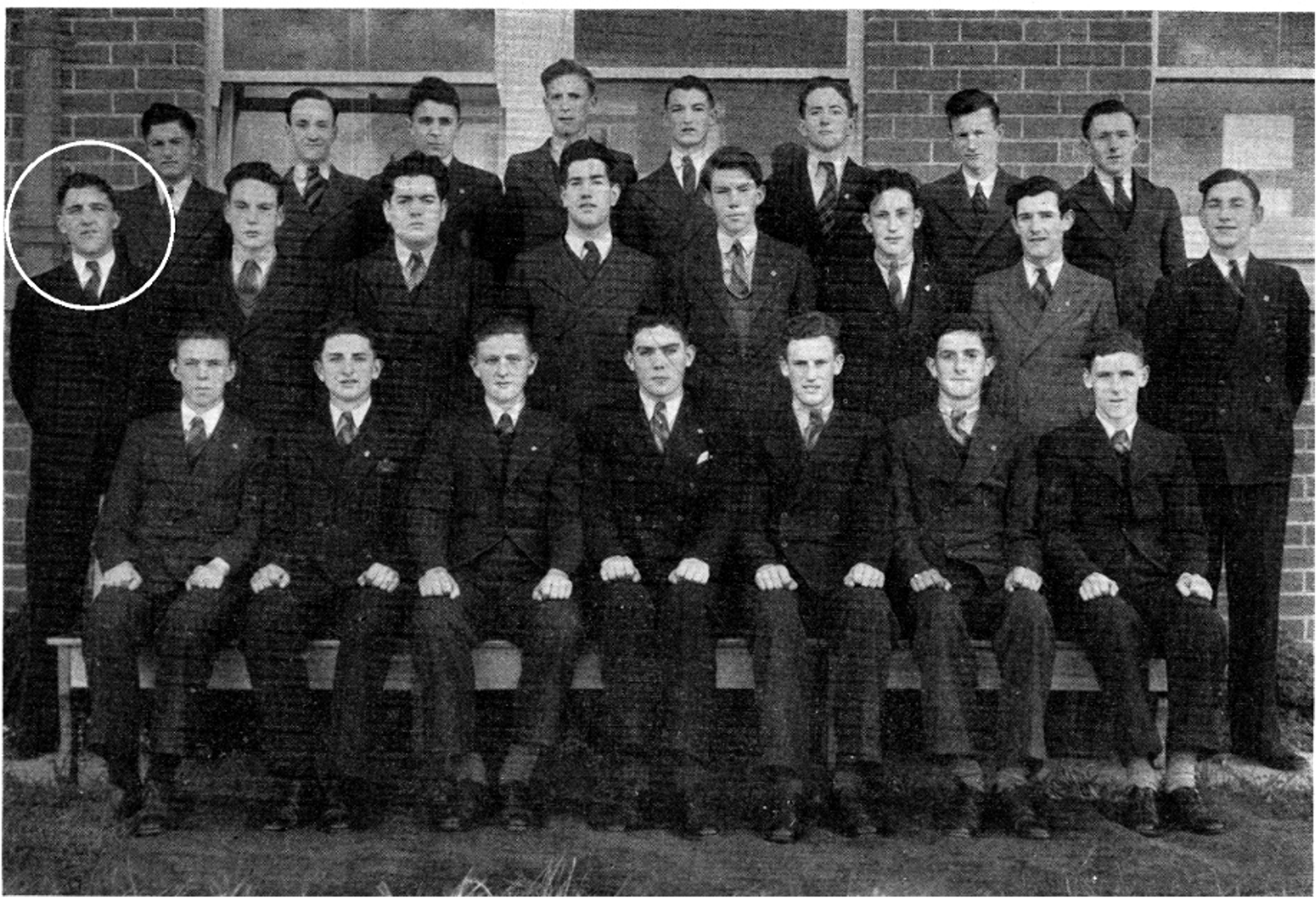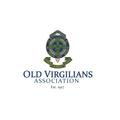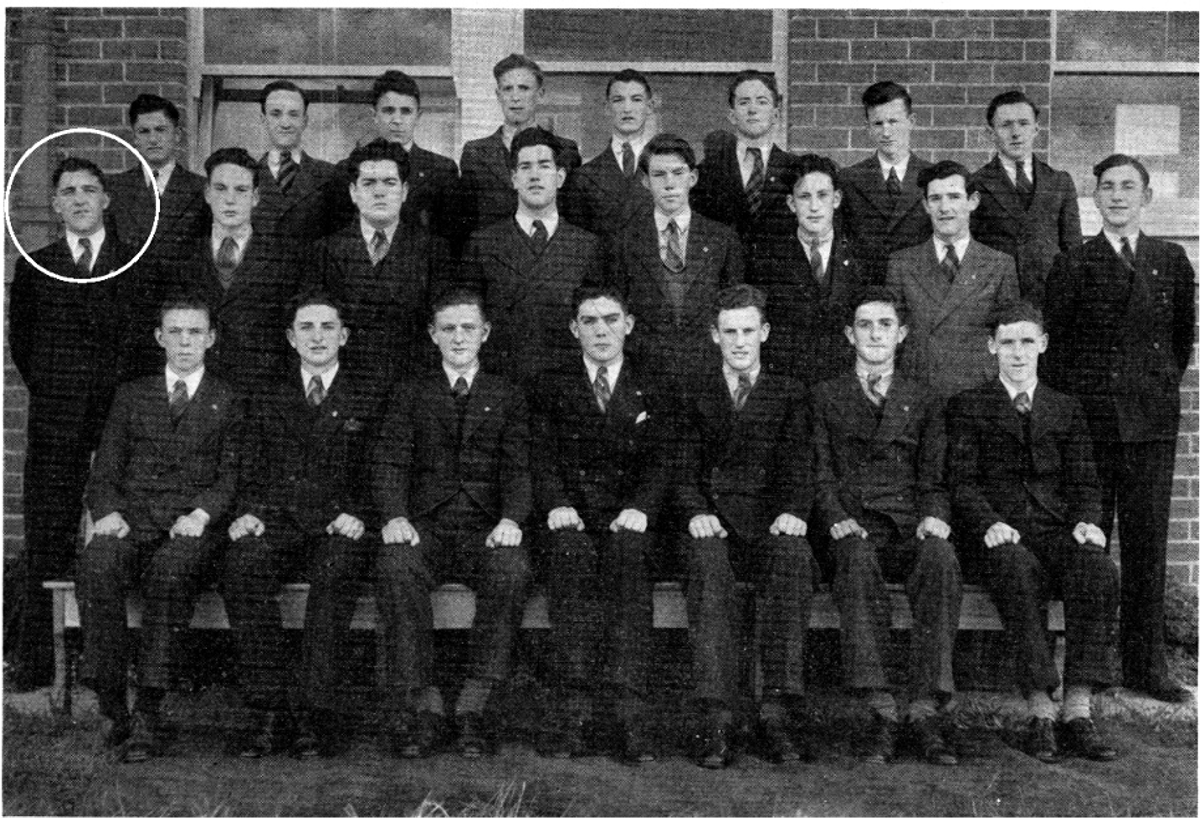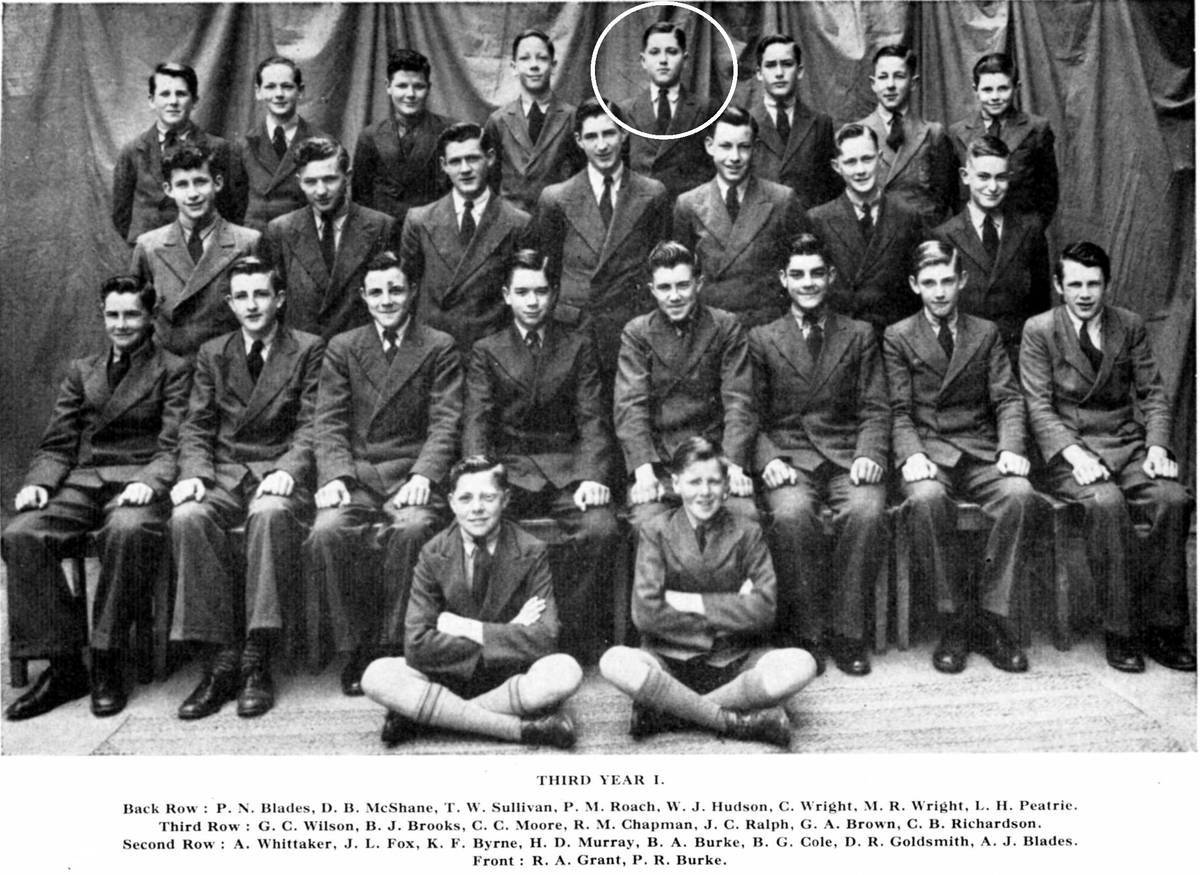From the Archives

WILF BARKER (1928 – 2003)(SVC 1939-45)
Taken from Wilf’s obituary, Herald Sun (Melb), 11/11/2003 (John Fitzgerald)
Wilf Barker was born in Tasmania. But more than that, he was born to sell.
One of Australia’s most accomplished television executives, Bob Campbell, got it spot on: “No one sold TV airtime better—he was a positively brilliant ‘pitcher’. He sprinkled the deal with stardust, sent the sponsors away happy, and had the viewers ecstatic.”
Via the Ten Network coverage of the 1984 Los Angeles Olympic Games, Barker and Campbell changed the nature of international television coverage of the Olympics in Australia forever. For 16 hours a day, every day of the Olympic Games, they delivered live coverage of Australians on the international sporting stage. In terms of viewing and sponsorship, it proved the renaissance of the Olympic Games for Australians after the boycott debacle of Moscow in 1980.
Working from the American ABC studios in Los Angeles, Baker delivered an Olympic Games telecast that integrated sponsors with competitors and specialist commentators in a manner never seen before on Australian TV.
The Ten owner, Rupert Murdoch, was only too ready to allow the lateral-thinking Barker to run free as he worked the Olympic celebrity procession towards what is today the Fox Network.
Well aware of his unique experience, Barker post-Games established Sports Marketing and Management, which today is dominant in Olympic marketing, not only in Australia but in Britain and throughout the world.
In the industry, Barker was held in awe as one who survived employers Sir Frank Packer and Kerry Packer, Sir Reginald Ansett (the original owner of Ten), and Rupert Murdock. Many didn’t.
Barker loved telling how, as marketing director of GTV9, he hired a cocky Kiwi floor polish salesman, who, with his encouragement and admiration, scaled the greatest heights in world television. His name is Sam Chisholm.
It was claimed he never missed a chance to do a deal. It is said that on his way to St Virgil’s College in Hobart, he was mugged by a protestant schoolboy, who stole his money and bought a bike.
Barker was the project director for the Australian Bicentennial opening celebrations centred on Sydney Harbour. He was equally in demand as a coordinator of bids by Brisbane, Melbourne, and Sydney, culminating in the Sydney 2000 Olympic Games.
In 1997, Barker was awarded the Australian Olympic Committee Order of Merit; he was the only recipient in that year. The criteria for this very exclusive award reads thus: The Australian Olympic Committee may award a person an Order of Merit who, in the opinion of the Executive, has achieved remarkable merit in the sporting world, either through his sporting achievement or his contribution to the development of sport.
WILLIAM J HUDSON (6 October 1934 – 1 February 2001) (SVC 1944 – 49)
(Source: Words and Deeds Dec. 2001)
William was the leading historian of Australian foreign policy, beginning his professional career when records were scant, archival material was closed, and the only sources were Hansard and newspapers. As the second editor of Australian Foreign Policy (1937–1949), produced in the Department of Foreign Affairs and Trade, William ended his career by making these obscure documents freely available.
William attended St Virgil’s from 1944 to 1949 and completed his secondary education at St Kevin’s College in Melbourne. He gained an honours degree in history at the University of Queensland. He chose journalism at first, beginning with the Brisbane Courier Mail, then moved back to Melbourne, where he did his master’s degree at Melbourne University. He went on to complete a PhD at the Australian National University in Canberra. In 1976, he was appointed editor of historical documents in the Department of Foreign Affairs. He was responsible for 10 of the 16 volumes in Documents on Australian Foreign Policy (1937–1949) and two supplementary volumes of letters. He was a prolific writer, and Casey's superb biography of the parliamentarian and governor-general is one of his finest.
Later in his life, he became an oblate brother at the Jamberoo Benedictine Abbey. His deep faith never left him. He is survived by his wife, Wendy, five children, and four grandchildren.



